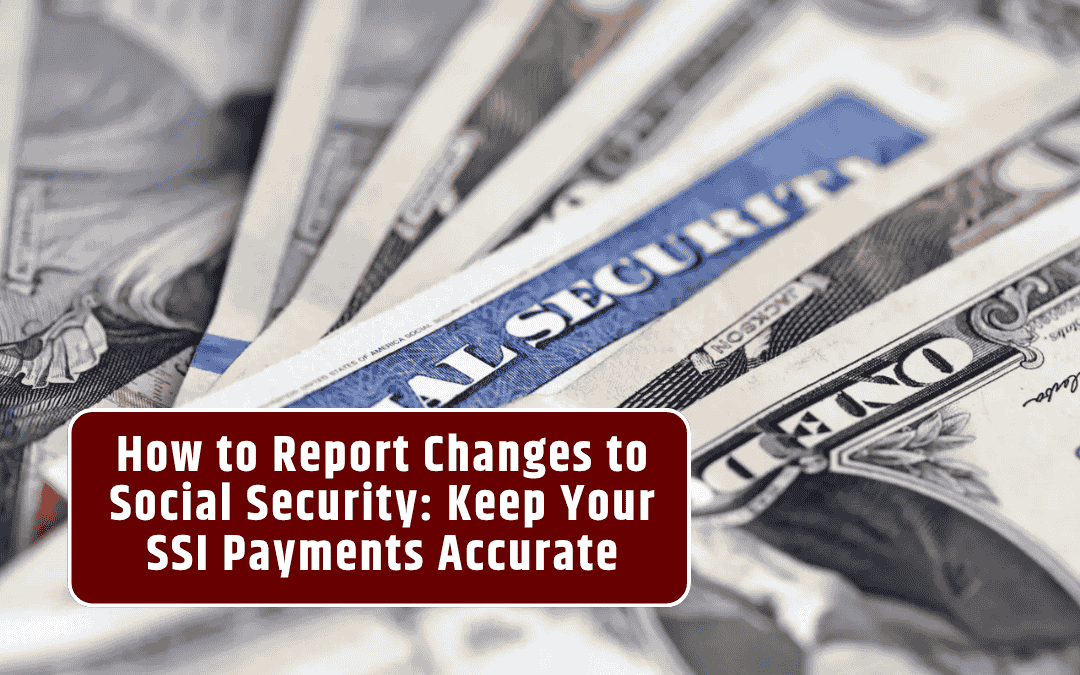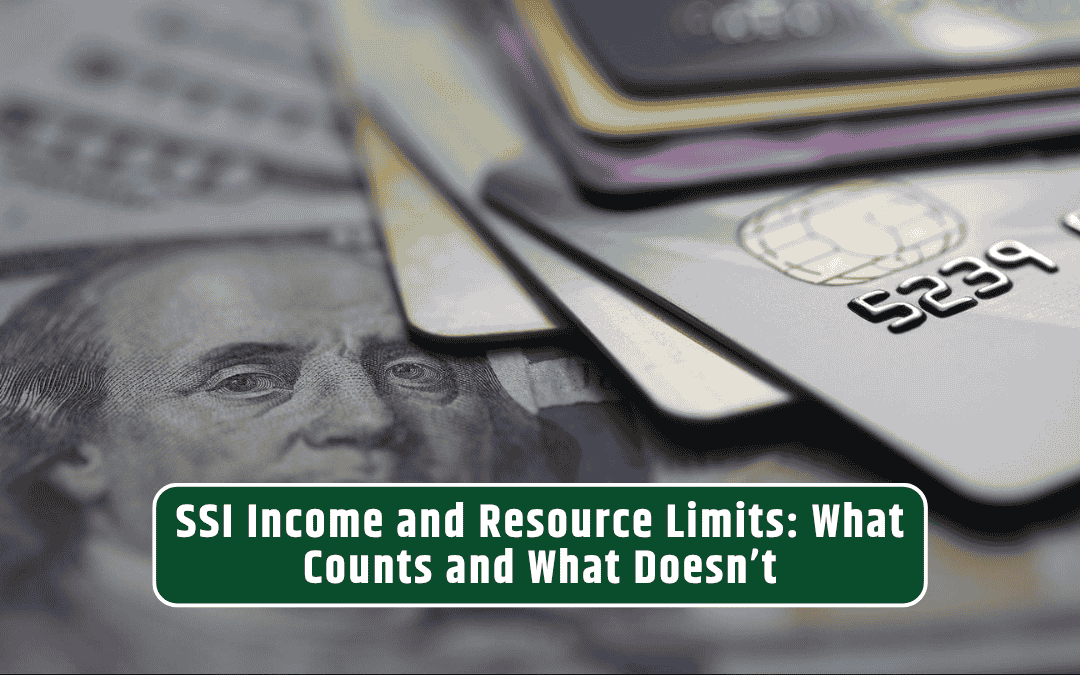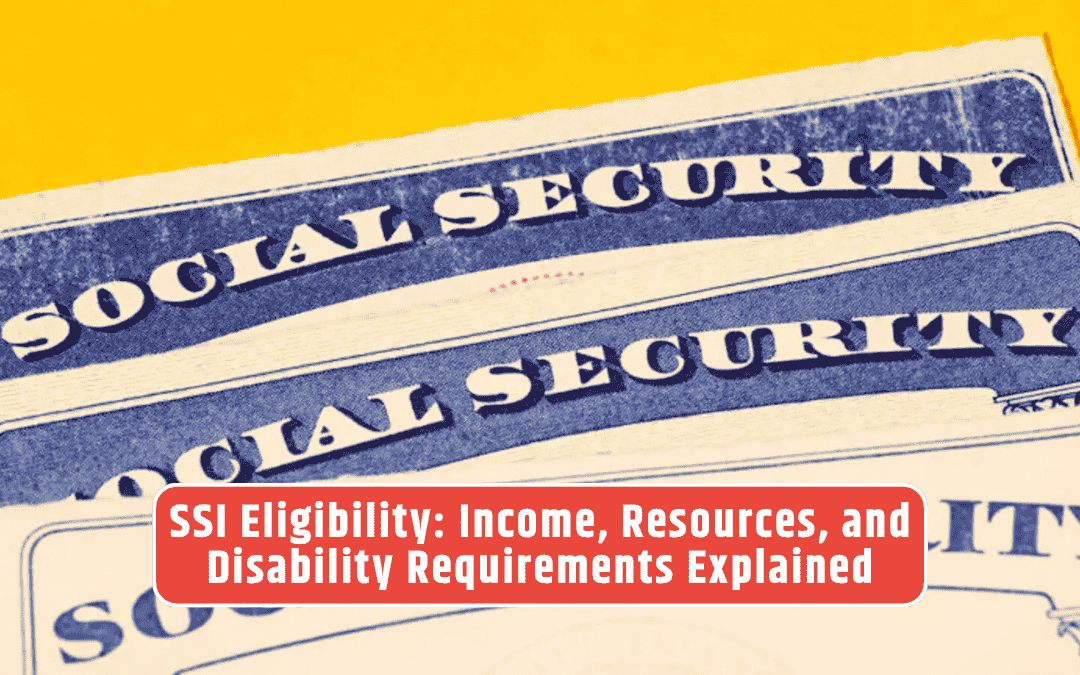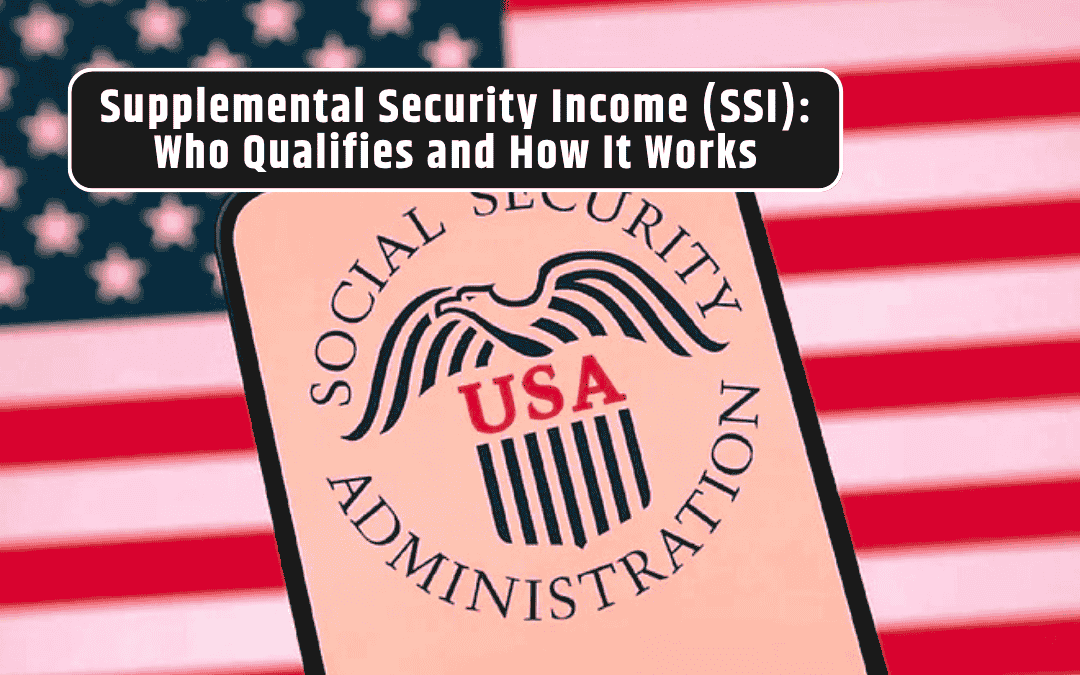For 2025, the maximum federal Supplemental Security Income (SSI) payment is $967 per month for individuals and $1,450 per month for couples.
However, not everyone receives the full amount. Your exact benefit depends on several factors, including your income, household situation, and whether you receive additional support from your state.
The Social Security Administration (SSA) adjusts SSI annually to account for inflation, ensuring benefits keep pace with the cost of living. Still, each recipient’s payment varies based on their unique financial and living circumstances.
How Your Income Affects SSI Benefits
The SSI program is designed to assist people with limited income and resources. Because of this, the amount you earn directly affects how much you receive. The SSA counts both earned income—money you make from working—and unearned income, such as benefits or pensions.
The general rule is simple:
- For every $2 you earn from work, your SSI payment is reduced by about $1.
- For every $1 you receive from non-work sources, your SSI payment is reduced by about $1.
This means that working part-time or receiving other forms of assistance can lower your monthly SSI check, though you may still qualify for partial benefits.
What Counts as “Earned Income”
Earned income includes any money you receive from:
- A regular job or part-time work
- Self-employment or freelancing
- Any business or personal activity that generates income
For example, if you earn $400 from a part-time job in a month, your SSI payment could be reduced by roughly $200. The SSA uses this formula to ensure that SSI primarily supports individuals who have limited financial means.
What Counts as “Unearned Income”
Unearned income refers to money that doesn’t come from work. This category includes:
- Disability benefits from another program
- Unemployment compensation
- Pensions or retirement payments
- Support from friends or family
Since unearned income directly reduces your SSI by nearly the same amount you receive, it’s important to report all sources of income to the SSA to avoid overpayments or penalties later.
How a Spouse’s or Parent’s Income Can Affect Payments
If you’re married or a child living with your parents, your SSI amount may also be affected by their income. For example, if your spouse earns wages, the SSA will consider part of their earnings when determining your eligibility and payment amount.
Similarly, children on SSI who live with their parents may have their payments reduced based on their parents’ income and resources. This process is called “deeming,” and it ensures that household income is factored into the overall financial picture.
Living Arrangements Matter, Too
Where and with whom you live can also impact your SSI payment. If you live in someone else’s home and don’t contribute your fair share toward food and shelter, the SSA may reduce your monthly benefit by as much as $342.33.
This reduction applies when another person—such as a family member or friend—provides significant financial support for your basic living expenses. The SSA assumes that help with food or housing decreases your financial need, and adjusts payments accordingly.
Examples of Living Situation Adjustments
Here are two examples to illustrate how this rule works:
- Example 1: You live with a friend who covers all your rent and grocery costs. The SSA may lower your benefit by up to $342.33 to reflect the assistance you receive.
- Example 2: You share expenses equally with your roommate and pay your own share of rent and utilities. In this case, your payment likely remains unchanged because you’re contributing fairly to household costs.
Reporting Changes Is Crucial
If your income, living situation, or household changes, you must report it to the Social Security Administration right away. Failing to do so could lead to overpayments, which the SSA may require you to repay later.
You can report updates online through your my Social Security account, by phone, or by visiting a local SSA office. Keeping your information current ensures your payments stay accurate and uninterrupted.
State Supplements Can Increase Your Benefits
In addition to the federal SSI payment, many states provide an extra monthly payment, known as a state supplement, to help cover food, housing, or medical costs. The amount varies by state and sometimes by city or county.
For example, states like California, New York, and New Jersey offer generous supplements, while others provide smaller additions—or none at all. Importantly, this state supplement does not reduce your federal SSI payment; it’s an added benefit meant to ease financial pressure.
How to Check Your Eligibility for State Supplements
You can contact your state’s SSI office or visit the Social Security Administration website to find out if your state offers a supplement and how much you may qualify for. In some states, the SSA administers these payments automatically, while in others, you must apply separately through a state agency.
The Bottom Line
The maximum SSI benefit for 2025 is a helpful baseline, but most recipients receive less due to income, living arrangements, or family circumstances. Understanding how these factors affect your payment can help you plan your finances more effectively.
By reporting changes promptly and exploring additional state support, you can ensure that you receive every dollar you’re entitled to—helping you maintain financial stability throughout the year.
FAQs
What is the maximum SSI payment for 2025?
For 2025, the maximum monthly SSI payment is $967 for an individual and $1,450 for a couple. However, your actual payment may be lower depending on income, living situation, and other factors.
Does my income affect my SSI benefits?
Yes. The Social Security Administration reduces your SSI payment by about $1 for every $2 you earn from work, and by $1 for every $1 you receive from non-work sources like pensions or unemployment.
Can living with others lower my SSI payment?
If you live in someone else’s home and do not pay your fair share of food and shelter costs, your SSI payment can be reduced by up to $342.33 per month.
Do states offer extra SSI payments?
Some states provide a state supplement to help with food and housing costs. This supplement does not reduce your federal SSI benefit and may be added automatically in certain states.









